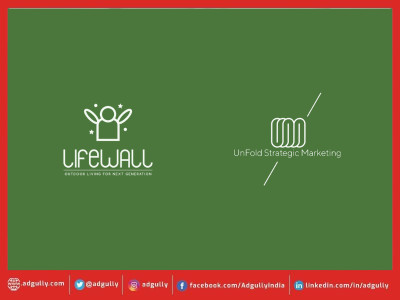Vidit Aatrey on how Meesho has gained a firm hold on the social commerce space
While the global pandemic has bought economies to a halt and massively disrupted businesses, it has also fuelled start-up dreams and we even saw several Indian start-ups achieve Unicorn status during the pandemic period. The times have never been better for the budding entrepreneurs to give wings to their start-up dreams.
The Government, too, has come up with various schemes to support its ‘Vocal for Local’ drive. A case in point is the recent Rs 1,000 crore Start-up India Seed Fund announced by Prime Minister Narendra Modi during the Start-up India International Summit 2021 held earlier this year.
Adgully is turning the spotlight on the entrepreneurs who fought against all odds to bring their dreams to fruition in our special series – START-UP STARS. We at Adgully wholeheartedly support the ‘Vocal for Local’ movement and over the next few months will be featuring all local/ homegrown businesses, brands and Apps.
Founded by two IIT Delhi graduates, Vidit Aatrey and Sanjeev Barnwal, in December 2015, Meesho has been strengthening its hold on the social commerce space. Headquartered in Bengaluru, the platform enables small businesses and individuals to start their online stores via social channels such as WhatsApp, Facebook, Instagram etc. Meesho recently raised $300 million in a new round of funding led by SoftBank Vision Fund.
In a very interesting conversation with Adgully, Vidit Aatrey, Founder & CEO, Meesho, takes us through the journey of the social commerce platform. Aatrey speaks at length about the various stages in setting up the platform and offers several useful insights for budding social commerce entrepreneurs out there.
Please take us through your journey as an entrepreneur. What motivated you to establish your start-up? What were you doing prior to turning an entrepreneur?
Prior to the conception of Meesho, I was working with ITC and InMobi right after graduating from IIT Delhi. It was in 2015 when it stuck me that I wanted to start something of my own. While exploring other options, I and Sanjeev came across the idea to use the Internet to create a platform to help micro and small businesses across India to move online and leverage the power of digital technologies. Social commerce was already a popular concept at that time, but the challenges such as limited access to supply, lack of logistics/ payment options, customer friendly policies, etc., were also on the rise. We, at Meesho, decided to touch these pain points and provide an integrated solution to all these problems. Till date Meesho has enabled ~7 million serving over 20 million customers 6,800,000+ entrepreneurs across India to sell on WhatsApp, Facebook, Instagram. Seeing how far we have come in a short span of five years gives Sanjeev and me immense pride and joy.
What need gap did you want to fulfil with your start-up? What is the core business proposition?
India is a young country, where entrepreneurship is a not only a lucrative but highly potential concept. However, a lot of people cannot pursue their dream of being an entrepreneur despite having breakthrough ideas. With Messho, we aim to provide a virtual shop to potential micro entrepreneurs to start their venture without worrying about capital, payment solutions or any other issue that a new entrepreneur might face.
We wanted to give every small business in India their own online store. We realised that most of the sellers already used tools such as Facebook and Whatsapp. So, we started training them to use the platform. ‘Meesho’ stands for ‘my shop’ or apni dukaan. The brand has been built from ground up and today close to 80% of our micro-entrepreneurs are women. At Meesho, we believe that anybody can be an entrepreneur from the comfort of their homes with zero investment.
Tell us something about the new TVC campaign. What is the idea and how did the brand come about with the insight?
The TVC showcases an interesting aspect of our social circles. Every person on our contact list has a specific persona. This reflects in their interests, fashion statement, and products they like to buy. This proved to be a significant insight for Meesho to collaborate with DDB Mudra and create the TVC in order to reach out to ‘social commerce’ women entrepreneurs in the country, who are always on the lookout to buy products for their customers as per their varied tastes and preferences. Meesho has a wide range of products to choose from, whether it is in terms of latest in fashion and garment, home décor, accessories and much more at affordable prices. One can always find something for everyone at Meesho.
How did you identify your TG? Did you carry out any feasibility study prior to starting your business?
In Meesho’s initial months, based on our insight data, we realised that most people joining the platform were first-time social sellers aiming to start something of their own in e-commerce space, but faced the initial investment barrier. About 70% of these users were women, homemakers and mothers, who had to leave their jobs because of family obligations.
That’s when we decided to change our communication strategy from focusing on additional benefits it provided to existing resellers to the ability to start one’s own business without any capital, of becoming an entrepreneur and, thereby, scripting a new narrative of financial independence and self-determination. Also, to provide women entrepreneurs with a sense of empowerment and self-worth and find themselves and their passion again with Meesho.
What were the challenges that you faced in your start-up journey and how did you overcome them?
Meesho has constantly been changing since the beginning. This is not a usual start-up story of two founders who stumbled upon an idea randomly and started the business. We have had our share of experimenting, pivoting until we got our core business proposition correct.
We still remember our initial days of feet on the street, when Sanjeev and I used to map out local stores in many localities of Bengaluru and allowed users the option of trying before buying. Customers could order items; they could try all the clothes and keep the shortlisted ones and return the rest. We ran this model for two months. However, soon we realised that there were multiple problems with the idea and implementation and the behaviour of users.
It is during our many interactions with these shop owners when we understood that many were looking at social media channels like WhatsApp, Facebook Messenger, Instagram for contacting their customers and doing business digitally. However, the experience has a huge room for improvement. Thus, started our Meesho journey by collating dedicated groups of sellers and buyers on Facebook. Throughout our journey, we’ve kept talking to our users as to how we can make their experience better. With Meesho 1.0, we soon found that people were not able to find new products or suppliers on the app conveniently. So, we started experimenting with what we call Meesho 2.0, which is also our current model. We are learning each day in this journey of ours to provide our entrepreneurs with the best of the business world and we are growing better with each learning.
How is digital helping you further your business?
Even before the Reliance Jio data revolution, Indians were hooked on to WhatsApp. And after 4G data became ubiquitous, online business also saw a surge. We have always seen that it is very difficult for people to trust online, weather in brands or system or anything else, but they do trust their community and that is exactly what we leverage, we leverage the trust of our end customers in our entrepreneurs who play the role of influencer and curator with digital as core of the entire process. They build trust by filtering for the right supply. It is only because of the abundant digital opportunity that we have, be it in the form of social media, our platform or any other means that our network is growing each day.
As stated earlier, Meesho has enabled 7 million serving over 20 million customers 6,800,000+ entrepreneurs across India to sell on WhatsApp, Facebook, Instagram by providing them products, logistics and payment tools. And all this and a lot more have been made possible via the Internet and digital ecosystem.
What were your key learnings from 2020? How do you see the start-up ecosystem progressing in 2021?
2020 was difficult for all of us. To survive the pandemic, the leadership at Meesho had to rewire the supply chain network to sell daily-use products in the homecare and sanitary product categories. These categories weren’t usually sold on Meesho before COVID-19. Due to the lockdown, it became difficult for us to get products delivered. Things were difficult even when partial relaxation was given by the Government on the movement of vehicles. Many suppliers who sold their inventory with us depended on Meesho for most of their income. COVID-19 affected most of their income. Therefore, most of the initial months of the lockdown were focussed on setting up a minimal logistics network. Meesho came up with a micro-credit strategy to ensure that our resellers had some minimal income. The year was unprecedented, but the will to create effective solution is what matters in the end and that is what we were committed to do.
Though the Pandemic continues to take a toll on the country, the acceleration that it has brought with it in terms of usage of technology is something most start-ups can leverage on. Owing to the pandemic, people have become more comfortable with technology and have started to see it as a more reliable means. Students, for example, relied on EdTech completely the entire year. 2021 is surely uncertain in terms of COVID-19 suppression, but I strongly believe that it’s going to mark a new era of innovation for start-ups.
What were the clearances that you required for your venture from various authorities?
Meesho operates an e-commerce marketplace, where FDI as per extant laws is permitted under the automatic route. We have sought other usual clearances under various Income Tax, GST, and Labour Laws such as PF, ESIC, Shops and Establishments, etc.
Funds/ finance is the prime issue for almost all start-ups. What can the industry and the Government do to address this issue and ease the capital requirements of start-ups?
Industry:
- The biggest aspect that the industry can do is to create and intensify the density of the network
- For most early stage start-ups, a large chunk of the capital comes from angel/ small funds that invest in seed, pre-seed, or angel rounds. That’s the first boost of capital that early companies get to test out multiple variants of product market fit. The more the utilisation of network, the more access to capital
- The other aspect that the industry could help entrepreneurs is on learning and providing more information on reaching product market fit. Better the product market fit, faster the conversion rate of fundraising
Government:
The Government has started to create focussed avenues (like accelerators, incubation hubs, etc.) that help in enabling budding entrepreneurs while also setting up capital for the same
Three things that the Government can do are:
- Increase the available Government capital and create awareness about such funds
- Create more funds that will cater to start-ups (maybe with public-private partnerships)
- Simplify the process of fundraising, especially for pre-seed companies
Earlier this year, Prime Minister Modi announced a Start-up India Seed Fund. How do you see start-ups benefiting from it?
We applaud the Government in its efforts to bring about the Start-up India Seed Fund. Early stage start-ups today need capital, especially for their early stages of growth. Neither angel investors/ venture capitalists nor banks provide loans without the proof of concept or assets. However, it is important to financially support and encourage entrepreneurs in their endeavours with an innovative idea to conduct proof of concept trials. We believe this will help entrepreneurship to grow in the country without any the initial hurdle in terms of financial support.
What would be your message for the budding entrepreneurs?
The past few years has seen a boom of entrepreneurship in India. However, the pandemic threw a huge curveball at all of us. Today, there are new problems to solve and which requires a fresh perspective and the zeal to find solutions. India is a huge talent market, access to capital and a sense of belief in the system that great global products can come from India – that is the direction we should all move in. My advice to budding entrepreneurs will be:
- Find your purpose and align it with the vision. And ensure each step is taken towards achieving that vision.
- Get your product right and keep at perfecting it. Focus more on the usage of the product than how much the users are paying for it. Usage is the single most important metric to determine product value. Product feedback will be a treasure trove for you with insights.
- Hire the ‘right’ team and empower them with the right work culture and ethics. They are the ones who will take the company’s growth to exponential heights. This has been a great advice given to us when we hit the ground running!
















Share
Facebook
YouTube
Tweet
Twitter
LinkedIn